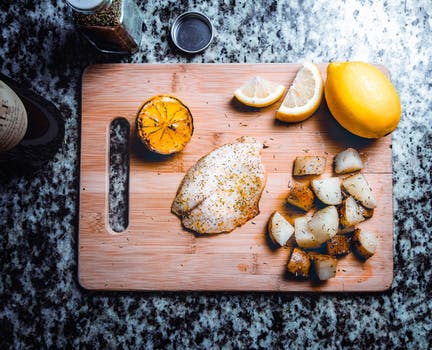Because I often get questions like “What is a low FODMAP Diet and should I be on one?”, I’ll be spending some time posting here more often about different diets, or ways of eating. I believe that no one diet works for everyone because we all have different biochemical make-ups. That said, the more you’re informed, the better you can piece together a way of eating that works best for you. The only way to know what works for your body is to experiment and listen to what it says to you.
FODMAPs is short for Fermentable Oligosaccharides, Disaccharides, Monosaccharides, and Polyols, which are the fancy, scientific names for different type of sugars and starches – in other words, short-chain carbohydrates, which some people have difficulty digesting without bloating, gas and constipation.
High FODMAP foods include wheat, dairy, ice cream, beans and apples. So for those with chronic digestive diseases and disorders like IBS, who can’t digest short-chain carbohydrates, these foods can do a number on them and a Low FODMAP Diet may help treat these conditions or else make digestion and nutrient absorption easier and more effective.
A Low FODMAP Diet limits lactose, fructose, fructans, galactans, and polyols by removing the following foods that contain these substances, including
- Artichokes, cauliflower, mushrooms, sugar snap peas
- Apples, apricots, blackberries, boysenberries, dates, figs, guava, mangoes, nectarines, papaya, peaches, pears, plums, persimmons, prunes, watermelon
- Dried and canned fruit
- Gluten-containing grains
- Beans
- Lactose-containing dairy
- Trans fats
- Saturated fats
- Sugar
- Refined grains
- Processed foods
Foods that are typically safe to eat on a Low FODMAP Diet, include:
- Most vegetables
- Some fruits
- Gluten-free grains
- Meat
- Poultry
- Fish
- Eggs
- Lactose-free dairy
- Nuts and seeds
- Healthy oils
This is not as much a diet as it is a lifestyle to treat chronic digestive conditions. If you struggle with IBS, IBD or related disorders it may be helpful for treating your symptoms and can increase energy. Know that it isn’t a quick-fix or weight loss solution – though you may experience weight loss – it does take time and dedication.
Those on a Low FODMAP Diet may find it difficult to eat in restaurants or social situations because so many foods do contain FODMAPs and therefore, following this diet requires preparing your own food at home.




Leave a Reply